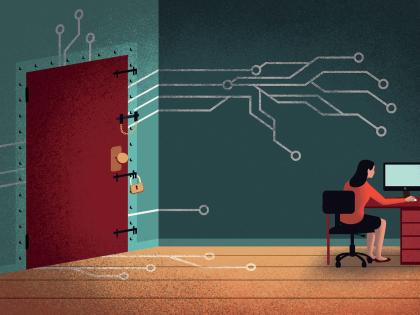1929
The Student Council criticizes the administration’s plan to erect one of the newly endowed Houses east of DeWolfe Street, arguing that the future Dunster House will be too far from such “immovable centers” as Widener, Mallinckrodt Laboratory, and the University Museum.
1934
The editors publish a list of nearly 200 books Widener Library cannot afford to buy because of the Depression, prompting gifts of books and money from Bulletin readers.
1939
A group of undergraduates begins raising money for 15 scholarships to bring South American students to Harvard; U.S. Secretary of State Cordell Hull calls it a great idea.
1949
Lamont Library opens, prompting a special 18-page issue of the Crimson that raves about its comfort, brightness, and efficiency.
1954
The Faculty’s Educational Policy Committee approves a program of early admission and advanced placement for able and mature students.
1959
Assistant U.S. Secretary of Health, Education, and Welfare Elliot Richardson ’41, LL.B. ’44, proposes that the federal government help out the parents of college students by means of tax exemptions, tax deductions, or tax credits.
1969
The Faculty of Arts and Sciences votes to withdraw academic credit for Reserve Officers’ Training Corps activities at Harvard—home of the oldest ROTC program in the country.
The Harvard-Radcliffe Policy Committee proposes that a co-residential trial exchange of students in the undergraduate Houses begin at once. A committee survey has indicated that 80 percent of Radcliffe students and 65.5 percent of Harvard students support the plan.
1989
Judith Richards Hope, J.D. ’64, becomes the first woman appointed to serve on the Harvard Corporation.







